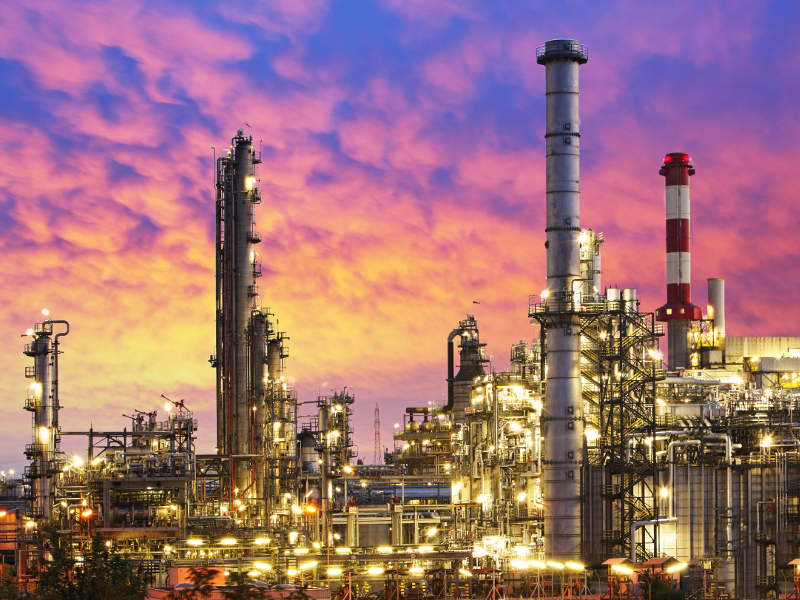Business News
State Refineries Still Not Meeting Demand, Despite N4.8 Trillion Spent – NNPCL
According to a Federal House of Representatives, report, output from the Port Harcourt, Warri, and Kaduna refineries has been below 30% since 2010.

Between 2010 and 2020, the Nigerian National Petroleum Company Limited spent N4.8 trillion operating state-owned refineries.
According to a Federal House of Representatives, report, output from the Port Harcourt, Warri, and Kaduna refineries has been below 30% since 2010.
The House of Representatives investigation noted that the refineries had been idle for years, yet that amount was spent despite the fact that the refineries were working much below their total capacity of 445,000 barrels of oil per day.
Nigerian State-Owned Refineries Face a Number of Challenges
Nigeria’s three state-owned refineries are currently undergoing rehabilitation, but they face a number of challenges that could delay their return to full production.
- Supply chain issues. The global supply chain has been disrupted by the COVID-19 pandemic and the war in Ukraine. This has made it difficult to obtain the equipment and parts needed to repair the refineries.
- Corruption. There have been allegations of corruption in the past, which has led to delays and cost overruns in refinery projects.
- Technical problems. The refineries are old and outdated, and they may require more extensive repairs than originally thought.
Despite these challenges, the Nigerian National Petroleum Corporation (NNPC) is optimistic that the refineries will be back online by the end of the year. If this happens, it would be a major boost for the Nigerian economy, which currently imports most of its refined petroleum products.
NNPC Group Chief Executive Officer Mele Kyari said that the goal is to have all of the country’s refineries working, which would make Nigeria a net exporter of petroleum products. This would help to reduce the country’s dependence on imports and could boost the economy.
However, it is important to note that there are a number of risks involved in this plan. If the refineries are not able to return to full production, it could lead to further disruptions in the supply of refined petroleum products. This could have a negative impact on the economy and could lead to higher prices for consumers.
Overall, the rehabilitation of Nigeria’s state-owned refineries is a complex and challenging task. There are a number of factors that could delay or prevent refineries from returning to full production. However, if the NNPC is successful, it would be a major achievement for the Nigerian economy.
Local Refining Not a Silver Bullet, Says PwC
Oil and gas stakeholders have called for all local refineries to be activated in order to drastically reduce Nigeria’s reliance on fuel imports and to stem the impact of fuel subsidy removal. However, a recent report from PricewaterhouseCoopers (PwC) has warned that activating local refining is not a silver bullet.
In its report, PwC stated that the general belief is that local refining of crude oil could potentially eliminate the need for petrol subsidies altogether or make the market price affordable. However, PwC also warned that there are a number of factors that could limit the effectiveness of local refining, including:
- The high cost of rehabilitating and upgrading Nigeria’s ageing refineries.
- The lack of skilled labour and technical expertise in the Nigerian refining industry.
- The high cost of crude oil feedstock.
- The high cost of transportation and logistics.
PwC also noted that fuel imports make Nigeria’s fuel price not only dependent on global oil prices and exchange rates but also on importation and handling charges. This means that even if Nigeria were to activate all of its local refineries, the price of fuel would still be affected by global market conditions.
Overall, PwC’s report suggests that local refining is a necessary but not sufficient condition for reducing Nigeria’s reliance on fuel imports and for making fuel more affordable. The government will need to address the challenges identified by PwC in order to realize the full benefits of local refining.
The PwC report also stated:
- “Local refining is therefore expected to reduce Nigeria’s dependence on imports and potentially stabilize petrol prices. However, other than the costs of haulage, insurance, and associated cost of importation, the material does not constitute the most significant component of cost across the value chain.
- “This implies that the pump price without subsidy would still be higher than the regulated price unless the international price of crude oil falls below a certain level.”
Read More Articles
Nigeria to open fuel importation to private firms, Starting June 2023 – Mele Kyari
In Sept, NNPC burned all of its gas output and earns zero revenue
